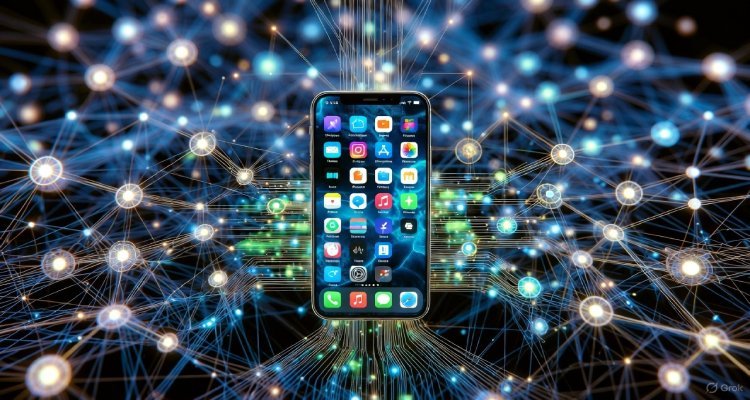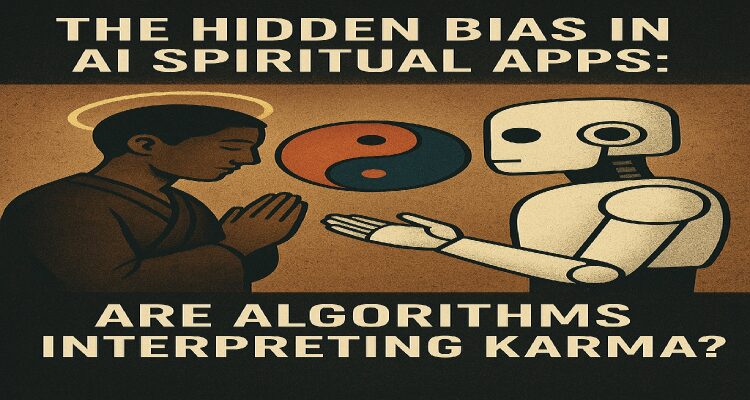The Hidden Bias in AI Spiritual Apps: Are Algorithms Interpreting Karma?
Spiritual AI apps promise digital wisdom, but hidden algorithmic bias raises questions: can karma truly be quantified and explained by machines?
Introduction: The Digital Oracle of Karma
In recent years, spiritual guidance has moved from temple bells and meditation halls to smartphone screens. Millions now turn to AI-powered apps to receive daily horoscopes, personalized affirmations, or karmic readings tailored to their digital footprint. Yet behind the futuristic sheen lies an uncomfortable question: when algorithms “interpret karma,” whose biases are really speaking?
As AI enters the deeply personal realm of spirituality, debates are intensifying over whether these technologies offer authentic guidance or simply package coded assumptions as divine insight.
Context & Background: When Spiritual Tradition Meets Silicon Valley
Spirituality has long been rooted in subjective experience—mantras, rituals, or ancestral wisdom. In contrast, artificial intelligence thrives on data. AI spiritual apps analyze user inputs—birth details, mood logs, or even typing patterns—to offer insights modeled on cultural philosophies like karma, dharma, or astrology.
The trend is booming. According to market research reports, wellness and spirituality apps form a multi-billion-dollar global industry, with AI-driven personalization driving growth. From Vedic astrology services in India to mindfulness chatbots in the U.S., technology is reframing how individuals engage with age-old traditions.
But karma, a concept tied to moral causality across lifetimes, raises unique challenges. Can a prediction model, trained on skewed data and programmed by engineers with their own worldview, capture something as profound as karmic justice?
Main Developments: The Algorithm Behind Your Destiny
AI-powered spiritual platforms usually rely on Natural Language Processing (NLP), machine learning, and recommendation systems. These tools excel at predicting patterns—such as suggesting songs, products, or even relationship advice. But when they enter spiritual spaces, the line between guidance and prediction bias blurs.
For example:
-
A karmic reading app may assign higher spiritual “scores” to users who regularly log meditation hours, implicitly equating digital consistency with moral growth.
-
Recommendation engines may over-prioritize certain cultural interpretations of karma—such as linking financial success with positive karmic cycles—while sidelining traditions that emphasize detachment from material wealth.
This subtle filtering turns complex spiritual philosophies into quantifiable metrics, leaving room for bias, cultural misrepresentation, or even exploitation.
Expert Insight & Public Reaction: Spiritual Codes or Cultural Coding?
Scholars of religion and AI ethics are beginning to voice concerns.
-
Dr. Maya Raman, a digital anthropologist, explains:
“When AI interprets karma, it is not accessing divine insight. It is reflecting the worldview of its programmers, the dataset it is trained on, and the algorithms prioritizing responses. Users often forget that ‘guidance’ here is just probability dressed in spiritual language.” -
Professor Alex Grant, an AI ethics researcher, warns:
“Bias in spiritual AI apps is more insidious than in shopping algorithms because it influences self-identity and moral choices. If the system equates wealth or productivity with karmic reward, users may internalize harmful stereotypes.”
Public reaction is mixed. Some users celebrate the accessibility of digital spiritual tools, describing them as “modern gurus at your fingertips.” Others criticize them as commodified shortcuts that oversimplify centuries-old spiritual wisdom into dopamine-driven app notifications.
Impact & Implications: Who Holds the Spiritual Remote?
The potential impacts extend far beyond personal guidance:
-
Cultural Distortion – Ancient philosophies risk being repackaged through Western-biased machine learning models, erasing regional nuances.
-
Psychological Influence – Users may develop dependency on algorithmic affirmations, mistaking statistical estimations for sacred truths.
-
Economic Consequences – Paid “karma upgrades” or premium spiritual readings could commercialize belief systems, raising ethical concerns.
-
Regulatory Gaps – Unlike health or financial apps, spiritual AI remains largely unregulated, leaving space for misinformation and exploitation.
Ultimately, the question is not just whether AI can interpret karma, but whether it should—especially when trust, belief, and vulnerability are at stake.
Conclusion: Searching for Balance in Digital Divinity
AI spiritual apps reflect humanity’s dual longing—for meaning and for convenience. They democratize access to mindfulness tools but risk embedding hidden biases into what should be universal wisdom. Algorithms can process data, but they cannot fully grasp karma’s moral and metaphysical dimensions.
As users, regulators, and developers grapple with these tensions, one truth stands out: spirituality is too profound to be left entirely to machines. Instead of outsourcing belief to algorithms, perhaps the challenge of our age lies in harmonizing digital tools with personal reflection—separating statistical predictions from soulful guidance.
Disclaimer : This article provides an analysis of AI and spirituality. It is not intended as spiritual advice. Readers are encouraged to approach spiritual practices through personal discernment and cultural context.











